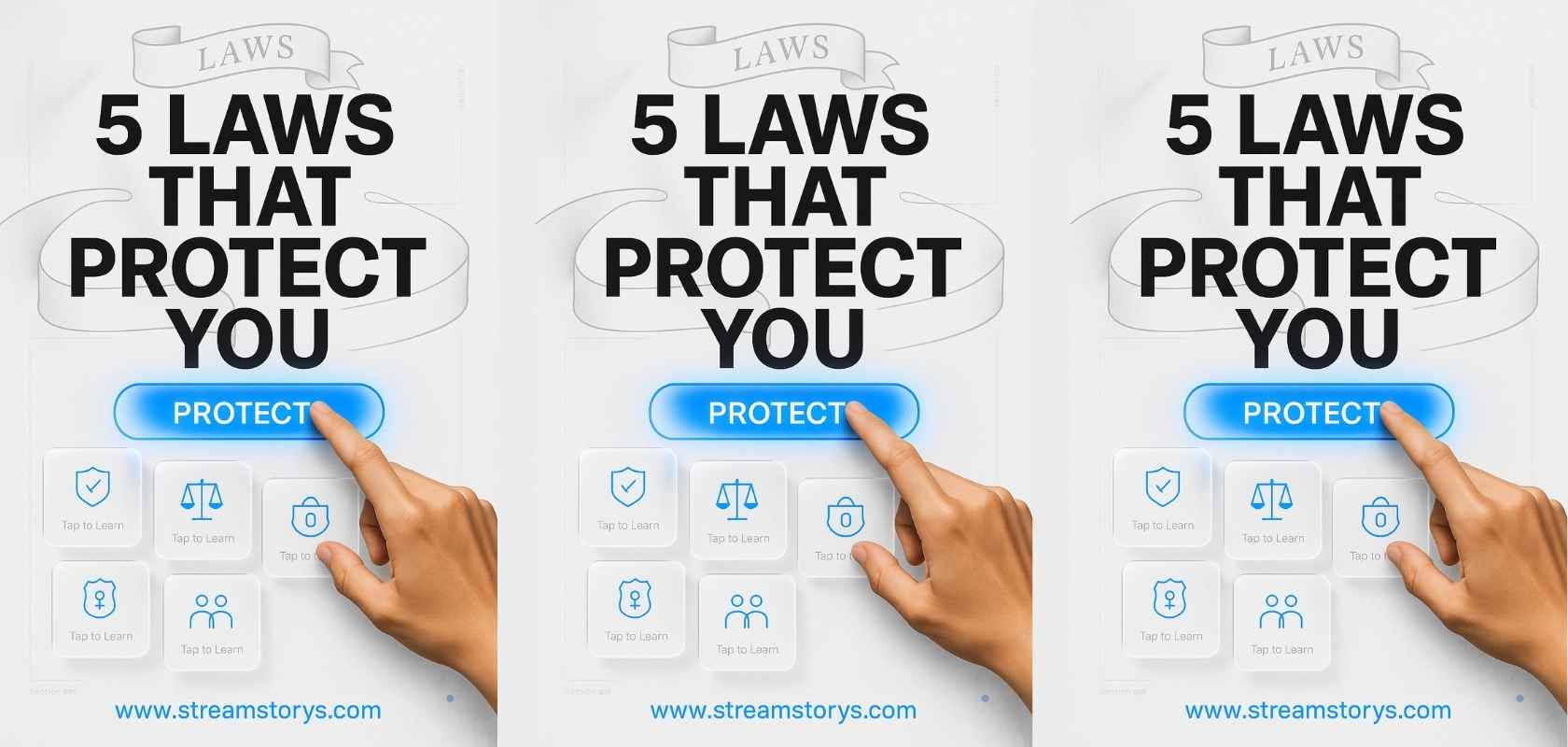
5 Laws that Protect you
They don’t teach these in school. Most people don’t even know they exist.
But these five laws could save you time, money, and serious trouble — if you know how to use them.
Let’s uncover the legal shields you didn’t know were already in your hands.
1. The Right to a Free Credit Report (USA)
What it is: Under the Fair Credit Reporting Act (FCRA), you're entitled to a free credit report every 12 months from each of the three major credit bureaus.
Why it matters: Credit reports affect loans, jobs, housing — even dating (yes, some people check!). Errors in these reports are shockingly common.
Real-world impact: A woman in Ohio was denied a mortgage because of someone else’s debt appearing on her report. She used her free report to catch it, dispute it, and eventually got approved.
Why no one talks about it: Credit agencies would rather you pay for "premium" reports. But AnnualCreditReport.com gives you access for free — as the law demands.
2. The Right to Work in a Safe Environment (India)
What it is: Under India’s Factories Act and Occupational Safety, Health and Working Conditions Code, workers have a legal right to a safe, hazard-free workplace — including adequate ventilation, clean drinking water, and proper sanitation.
Why it matters: Especially in informal jobs or startups, employees hesitate to speak up about poor conditions.
Real-world impact: In a small IT office in Hyderabad, an employee fell sick due to mold and AC leakage. Citing this law, she demanded repairs — and HR complied within days.
Why no one talks about it: Many companies bank on employees being unaware. But you're not just a worker — you're protected by law.
3. The Right to Digital Privacy (EU & Beyond)
What it is: The General Data Protection Regulation (GDPR) gives people in the EU the right to access, correct, delete, or restrict how companies use their personal data — even from big tech.
Why it matters: Your browsing habits, photos, messages — companies collect it all. But GDPR means you can demand they erase it.
Real-world impact: A man in Germany requested deletion of all data Facebook had on him. They resisted — until he cited GDPR. They complied.
Why no one talks about it: Big tech companies aren’t eager to publicize your right to vanish from their servers.
4. The Right to a Refund on Faulty Products (Most Countries)
What it is: Under consumer protection laws, if a product you buy is defective or not as described, you’re legally entitled to a repair, replacement, or refund — even if the shop says “no refunds.”
Why it matters: Stores often pretend all sales are final. That’s a lie.
Real-world impact: A customer bought headphones that broke in 10 days. The shop refused a refund. He cited the Consumer Protection Act — and walked away with a new pair.
Why no one talks about it: Retailers rely on bluffing. But knowing this law lets you call them out — confidently.
5. The Right to Record Public Officials (USA & Some Other Countries)
What it is: The First Amendment in the U.S. gives citizens the right to record police and public officials in public spaces — as long as you're not interfering.
Why it matters: In an era of police abuse and government overreach, this law empowers ordinary people to hold power accountable.
Real-world impact: A bystander recorded a traffic stop where an officer was aggressive. That video helped prove misconduct and saved the driver from false charges.
Why no one talks about it: Officials may try to intimidate you into putting the phone away. But legally, it’s your right.
🧠 Final Thought: Know Your Power
Most people live their whole lives unaware of the protections already written into law.
But the truth is: ignorance benefits the powerful.
Next time someone says “you can’t do that,” ask yourself: Can’t I? Or do they just hope I don’t know I can?
Your rights are your armor. And now you know 5 more.